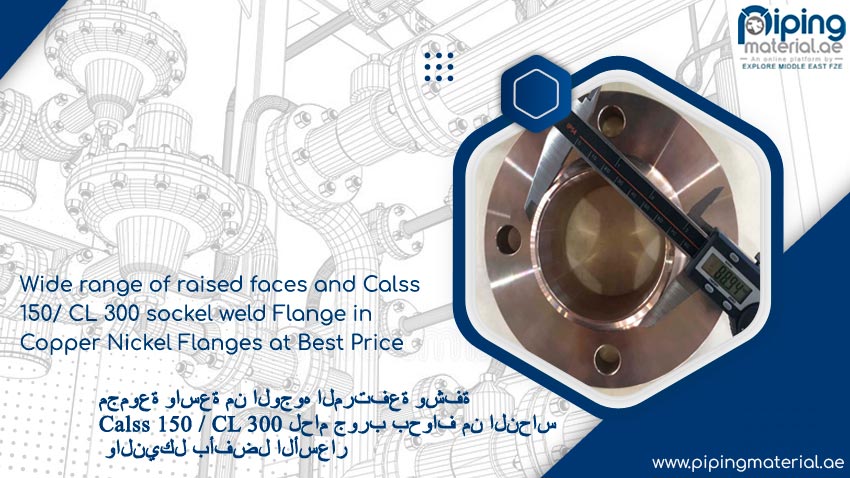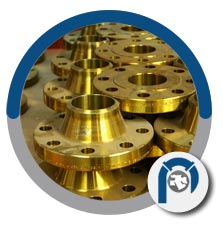Unveiling the Strength and Versatility of Copper Nickel Tubes and Flanges
July 14, 2023 - 0 COMMENTS

Introduction:
In the world of industrial applications, copper nickel tubes and flanges have emerged as indispensable components due to their remarkable strength, corrosion resistance, and versatility. These robust materials find extensive use in various sectors, including marine, oil and gas, power generation, chemical processing, and more. In this blog, we will explore the unique properties and applications of copper nickel tubes and flanges, shedding light on their importance and value in modern engineering.
Copper Nickel Tubes:
Copper nickel tubes, also known as cupronickel tubes, are alloyed with varying proportions of copper and nickel, along with trace amounts of other elements such as iron and manganese. The most common copper nickel alloys used in tube manufacturing are C70600 (90/10) and C71500 (70/30), which refer to the respective copper-to-nickel ratios. These alloys offer excellent resistance to corrosion, erosion, and biofouling, making them ideal for demanding environments.
- Corrosion Resistance: One of the most significant advantages of copper nickel tubes is their exceptional resistance to corrosion, especially in marine environments. The presence of nickel in the alloy enhances its resistance to seawater, brine solutions, and various corrosive media. This property makes copper nickel tubes a preferred choice for heat exchangers, condensers, and piping systems in desalination plants, offshore platforms, and shipbuilding.
- High Thermal Conductivity: Copper nickel tubes possess excellent thermal conductivity, making them efficient for heat transfer applications. They can efficiently transfer heat from one fluid to another, making them suitable for use in heat exchangers, HVAC systems, and power generation plants. The combination of thermal conductivity and corrosion resistance makes copper nickel tubes a reliable solution in challenging environments.
- Low Fouling and Biofouling Resistance: The unique properties of copper nickel alloys, such as their inherent antimicrobial properties and resistance to biofouling, make them highly sought after in applications where cleanliness and efficiency are critical. The prevention of biofouling reduces maintenance requirements and ensures optimal performance in heat exchangers, condensers, and cooling systems.
Copper Nickel Flanges:
Copper nickel flanges play a vital role in joining copper nickel tubes and piping systems, providing a secure and leak-free connection. These flanges are designed to withstand high pressure and temperature conditions, making them suitable for critical applications.
- Strength and Durability: Copper nickel flanges are known for their strength and durability. They can withstand high levels of mechanical stress, making them ideal for demanding environments such as oil refineries, chemical plants, and power generation facilities. Their robust construction ensures leak-free connections, preventing costly downtime and system failures.
- Easy Installation and Maintenance: Copper nickel flanges are designed for easy installation, allowing for quick assembly and disassembly of piping systems. Their versatility and compatibility with various connection methods simplify maintenance and repairs, reducing downtime and enhancing operational efficiency.
- Corrosion Resistance: Similar to copper nickel tubes, copper nickel flanges exhibit excellent corrosion resistance, ensuring long-term performance in harsh environments. This property makes them suitable for applications involving seawater, brine, and other corrosive media.
Conclusion:
Copper nickel tubes and flanges are indispensable components in various industrial sectors, providing strength, corrosion resistance, and reliability in demanding environments. Their exceptional properties make them a preferred choice for applications ranging from marine systems and oil refineries to power generation plants and chemical processing facilities. The versatility and durability of copper nickel tubes and flanges ensure the smooth operation of critical systems while reducing maintenance costs and increasing overall efficiency. As the demand for robust and corrosion-resistant materials continues to grow, copper nickel alloys remain at the forefront of modern engineering solutions.









